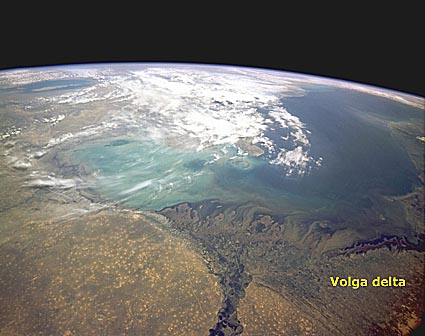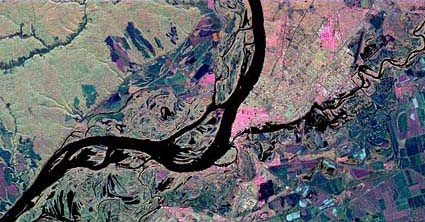|
Location: 48N 46E (Russia); length: 3700 kilometres (2300 miles); drainage basin: 1.4 million square kilometres (500,000 square miles). The Volga is Europe's longest river. It flows from headwaters near Moscow, Russia, to the Caspian Sea at Astrakhan. The main cities beside the river are Nizhni Novgorod, Kazan, Samara, Volgograd and Astrakhan.

The Volga delta as it enters the Caspian Sea.
The Volga has its headwaters in the Valdai Hills to the west of Moscow. From here it flows first east and then south, through a generally low lying landscape. The Volga valley has been an important trade route linking Scandinavia with Asia since ancient times. In modern Russia the route is more important than ever; in a country where road transport is poor, both railroads and rivers are used wherever practicable. Hence the navigable Volga is used intensively through the eight months each year that it is unfrozen. Barge traffic carries bulky cargoes such as building materials, timber and fertilizers.

The Volga river.
To improve navigation, produce hydroelectric power and store water for irrigation, the Volga has been turned into a series of lakes. These include the Tsimlyanskoye and Kuybyshevshoye reservoirs. The Volga is connected to the other major waterways of Russia and to the Black and Baltic seas by canals. |